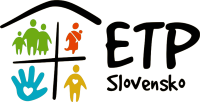Mentoring program
The main goal of the Capable Children – Mentoring Program is to systematically continue the long-term support of the 54 students from four marginalized Roma communities (MRCs). It is important to ETP Slovakia that students from these MRCs finish their elementary school and that they can have a chance to continue their studies at high school. Their ability to be successful in their life, therefore increases.
Participants of the project Capable Children – Mentoring Program are students from Elementary and High Schools in Rankovce, Stará Ľubovňa, Veľká Ida and Košice – Luník IX. Twenty mentors support the 54 students by spending 8 hours per month helping them to achieve better school results and encouraging them in personal responsibility and to planning a better future.
Meetings with mentors mainly take place in our community centers and during various field trips. Mentors also regularly meet with students’ parents and teachers.
While facilitating project the Capable Children – Mentoring Program, we:
• connect people from the majority with children from the MRCs
• help to break barriers and, through participant´s engagement in online mentoring, we broaden their social connections with people from the majority middle class
• organize weekend/holiday educational camps
• monitor evidence of the results of help and its results
• inform the public about project activities and children´s successes through our website, social networks, conferences, workshops, news articles and personal interviews.
Our mentees, being direct participants in the program without their determination and efforts no success would be possible. We try to maintain all mentor – mentee relationships so long-term friendships will be developed and the relationships will be maintained after the end of the program support.
We are delighted that people are interested in mentoring Roma children and that more people wish to help children emerge from their hard situations.
Duration of the project: April 2019 – March 2022
This project is financially supported from European Social Fund, European Regional Development Fund as a part of Operational Programme Human.




